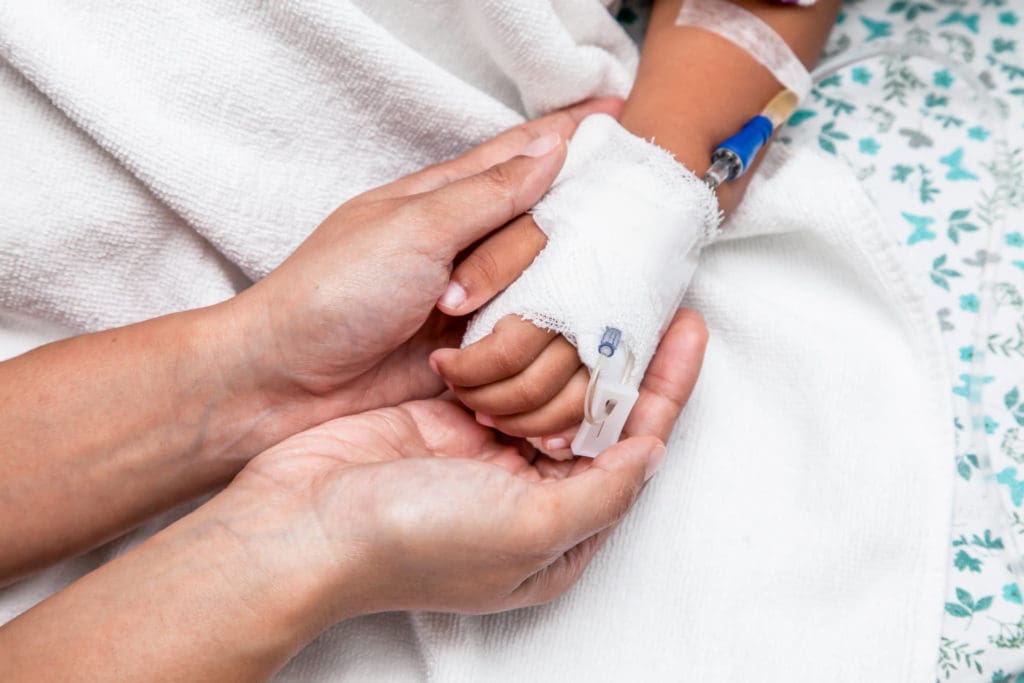How Do Personal Injury Cases for Minors Work?
Facing a personal injury claim as an adult seems scary. However, for those who may be parents, legal guardians or just love the kids in their family, could find it more terrifying if the child they love was injured due to someone else’s carelessness. It’s unfortunate and we would hope no family would ever suffer like this. Personal injury cases for minors are not as straightforward as personal injury cases for adults either. So if your child or loved one has been in a personal injury accident, where do you start?
The Process of Personal Injury Cases for Minors
We never want to imagine what may happen to our child or loved one. Nonetheless, being prepared anyway can make a world of difference. By law, in the United States, personal injury cases for minors involve someone who is under the age of 18.
Once a minor is in an injury-causing accident, you first want to open a personal injury claim up. This way you and your child can get back compensation for medical bills, pain and suffering, permanent damages, and possibly disability. The hope in opening a claim is so that the family can receive maximum recovery for the child now and in the possible future.
A child can’t make the final decision in a case. For example, actions like negotiation. Therefore, their parent or guardian is allowed to handle the case on behalf of the child. Moreover, they can also decide to hire an attorney to handle the legal logistics. Their parents may be in charge of the decisions in the process. However, the minor has a right to their own compensation. This means that they can recover some amount for their injuries as well.
Personal injury cases for minors are opened to compensate both the parent(s) or legal guardian(s) and the minor themselves. Compensation for medical bills will go to the parent or legal guardian. Whether that be current medical bills or later down the road if there are more permanent damages while the child is still a minor. Nonetheless, once the minor turns into an adult, they may have access to the rest of the compensation for pain and suffering, permanent damages, and maybe disability. In some cases, courts jump into the legal decision making as well to protect the interests of the minor.
The Road to Settlement: Personal Injury Cases for Minors
Laws are different in every U.S state. We are going to be talking about the DMV area.
Personal injury cases for minors may require the judge to approve a settlement offer to confirm the compensation is in the best interest of the minor. More specifically, this law is mentioned in the Virginia Code Section 8.01-424. Agreeing on the settlement offer may seem like the last step, however in many cases it’s not.
Two possible scenarios of personal injury cases for minors may present itself. First, the courts may require that the legal guardians open an interest-bearing account for the minor. Interest-bearing accounts usually have a negative effect when touched in any way before the minor turns 18. However, the parent may be able to use the funds for the minor’s health, education and welfare. Exceptions to this rule are, buying the minor a car, taking them on a vacation or just buying them a computer, even if it’s for school. Another scenario that may happen is having the court’s clerk hold on to the money until the minor turns 18.
Sometimes the clerk will hold on to the funds until the minor turns 18. Once the child turns 18 they can show up in court and ask that the funds are moved over to their possession. This usually happens if the settlement was a large amount, however cases vary and are based on what is best for the minor. Nonetheless there are some exceptions to keep in mind as a parent or minor if a personal injury accident has affected your life.
The Legal “What If’s’ in Personal Injury Cases for Minors
First idea to keep in mind is the statute of limitations. Well, what is the statute of limitations? This is the time period a person has to file a case before a ‘deadline’. With that being said, personal injury cases for minors have 3 years from the date they turn 18 to start a personal injury case. This rule exists in Maryland and Washington, D.C.. However, in Virginia the timeline is 2 years after the date the minor turns 18. In this case, a minor who turns 18 may be able to open up their own personal injury claim for damages. In short our advice is to watch out for the date. Your case may be dismissed in court if the statue of limitations is reached. What if a minor is legally emancipated? This would change everything.
To be legally emancipated, means that the minor is legally not attached to their parents or guardians any longer. This is through a legal process involving family law. However it may play a part in a personal injury case involving a minor. In this case, the minor would become an “independent adult” for their own case with statute of limitations similar to an adult’s personal injury case. One last scenario that may affect personal injury cases for minors is if the minor is very young.
What we mean by very young would be around 5, 6 or 7 years old. The DMV area as a whole practices contributory negligence. Contributory negligence law says that if the plaintiff is partially at-fault in the accident, then they may not receive compensation. However in Virginia, minors younger than 7 years old by law cannot be contributorily negligent. Just the same as in Maryland. However that age is under 5 years old. Therefore, depending on how young the minor is, they may still have a personal injury case. Personal injury cases for minors are very different from an adult injury, so make sure you have the right answers for YOUR situation.
Call An Attorney For Answers on YOUR Situation
If you’re unsure it is okay to get in touch with an attorney. An accident that happens to a child is devastating and we want to help in any way possible. We will be upfront with you and straight to the point. Get the help you need for you and your family right away. Call us, even just to talk about your options: 202-933-1918.




